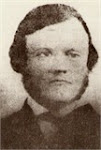A Conspiracy of Paper was David Liss's first work of historical fiction. The book is set in London during the early 1700's and centers around the South Sea Company or more precisely, the South Sea Company's stock and its struggle against the Bank of England. In it the reader first meets Benjamin Weaver, a Jewish thief-taker and former boxer. Weaver is the central character in this book as well as The Devil's Company: A Novel, The Coffee Trader: A Novel (Ballantine Reader's Circle), and A Spectacle of Corruption: A Novel.
Liss excels in the details of time and place, which allows him to achieve a realistic and factually accurate picture of London during the early stock-jobbing days, Exchange Alley, the Jewish `quarter', Newgate prison, and the most famous - or I should say infamous real-life thief-taker of them all, Jonathon Wild see also http://tarlton.law.utexas.edu/lpop/etext/newgate3/wild.htm.
Thief-takers caught criminals and turned them over to the State earning a handsome fee in the process. Our man Weaver was one of the few honest thief-takers. Wild's imaginative business plan, on the other hand, earned him the title, Thief-Taker General as he played both sides of the street. He employed crooks and thieves and then `peached' them when their future value fell below the government's price offer.
 |
| Jonathon Wild |
Liss sets Weaver to solve the murder of his estranged father and one of his father's business associates neither of whom appeared to have been murdered on the face of it (one died in an accident, the other by his own hand). Weaver soon finds himself caught between some of the most powerful forces in 18th century England: the Bank of England, the South Sea Company, and Wild.
Liss spins an engaging tale with marvelously rich historical detail. Unfortunately, he also has a taste for overly complex plotting. Liss drops heavy hints first that the bank was behind all Weaver's troubles and then that the South Sea Company was his nemesis. And then the bank, the company, the bank - you get the idea. Mix in a healthy dose of Wild and clues strongly suggesting his alliance with one or the other and the reader feels that the game isn't quite a fair one. Still, Liss's works are high quality historical fiction and well worth a read.
***
Henry Fielding, the great 18th century author of the picaresque novels Joseph Andrews and Tom Jones, also wrote a black comedy about Jonathon Wild.
***
Of course, the South Sea Company is rarely mentioned these days without adding the word 'Bubble' on the end. You can view some wonderfully detailed and grotesquely hilarious engravings in Het Groote Tafereel der Dwaasheid (The Great Scene of Folly), a Dutch book published n 1720 just after the Bubble burst. The following photos from the text are found on blaques_jacques photostream
http://www.flickr.com/photos/bjacques/with/30975_66915/
 |
| Go to the next picture for the full engraving - and an explanation. |
 |
| To understand what the heck is going on here, go to http://www.flickr.com/photos/bjacques/3097566905/in/set-72157611015946994/ |


















No comments:
Post a Comment